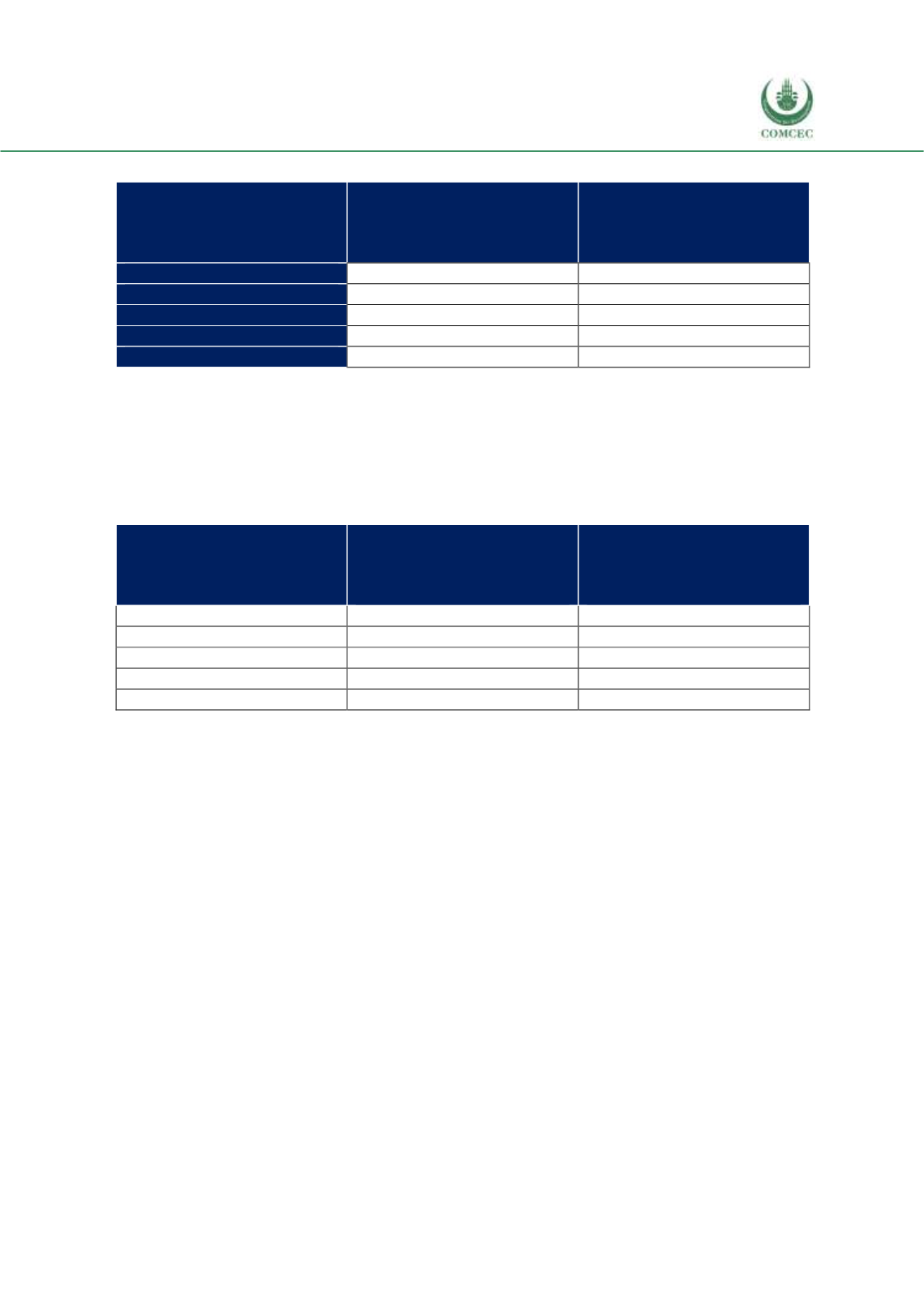

Reviewing Agricultural Trade Policies
To Promote Intra-OIC Agricultural Trade
101
Table 4. 19 Top 5 OIC Destination Countries for Morocco’s Top 5 Export Products
Importer OIC country
Value of agricultural
exports to the country,
million USD, last 3-year
average
% share in total
agricultural exports to the
OIC countries, last 3-year
average
Turkey
86.6
16.9
Lebanon
44.5
8.7
Côte d'Ivoire
42.2
8.2
Mauritania
34.5
6.7
Syria
24.9
4.9
Source: CEPII BACI, Eurostat RAMON, UN Comtrade, UN Trade Statistics, and authors’ calculations
The first 5 markets from which Morocco purchases the highest agricultural imports in the OIC
market has been shown in Table 4.20. Egypt is the largest market for Morocco’s top 5
agricultural product imports fromOIC countries with a share of 29.7%, followed by Tunisia with
a share of 13%. Both Egypt and Tunisia are geographically close markets to Morocco, which
explain their higher shares. The third largest market is Indonesia, followed by UAE and Turkey.
Table 4. 20 Top 5 OIC Origin Countries of Morocco’s Top 5 Import Products
Exporter OIC country
Value of agricultural
imports from the country,
million USD, last 3-year
average
% share in total
agricultural imports from
the OIC countries, last 3-
year average
Egypt
96.6
29.7
Tunisia
42.1
13.0
Indonesia
38.9
12.0
UAE
33.5
10.3
Turkey
23.6
7.3
Source: CEPII BACI, Eurostat RAMON, UN Comtrade, UN Trade Statistics, and authors’ calculations
4.2.2. Agricultural Trade Policies in Morocco
Background
From independence in 1956 to the late 1980s, the agricultural sector in Morocco was subject to
heavy state intervention. The direct and indirect involvement of the state was particularly
visible in marketing and international trade. Imports of cereals and exports were under the
control of state-run offices. Production was pursued largely by the private sector, but the
production decisions are coordinated by the state as well. The stability of domestic prices of
certain strategic products and increasing agricultural productivity were among the main
motivations of state interventions.
Liberalizing agriculture, rationalizing state intervention in agriculture, and liberalized
agricultural trade policy were among the main purposes of the reform initiated in 1983. In the
following years, export taxes on agricultural products were reduced to zero. Tariffs on average
were decreased substantially, but the state monopolies’ role on importing was preserved.
In the early 1990s, reformand liberalization efforts by theMoroccan authorities were continued,
and Marrakech was chosen as the ceremony site of the 1994 GATT agreement. Morocco is a
member of the WTO since 1995.


















